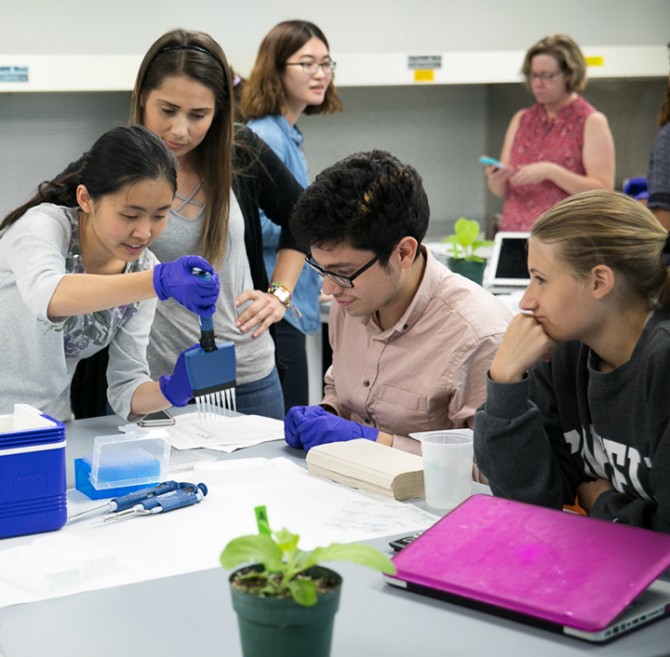Grant expands undergrad offerings on Latin America and Caribbean
By Jonathan Miller
Political upheaval. Environmental change. Technological innovation. Economic turmoil. Social movements. Refugee crises. Vibrant cultures. Emerging threats to public health.
For years, Cornell faculty and graduate students have immersed themselves in these topics in Latin America and the Caribbean.
Undergraduates? Not as much – but a three-year, $342,000 grant to Cornell’s Latin American Studies Program (LASP) should change that.
“Building Bridges: Integrating the Sciences, Humanities and Social Sciences in Undergraduate Latin American Studies” will give students at Cornell, Tompkins Cortland Community College (TC3), Onondaga Community College in Syracuse and Monroe Community College in Rochester, New York a range of opportunities to get to know a dynamic region of more than 650 million people.
“So many of the world’s most important issues are playing out in our own hemisphere,” said LASP director Kenneth M. Roberts, a specialist on comparative politics and professor in the Department of Government. “Now many more students will be able to learn about them firsthand.”
The grant, submitted by LASP in consortium with TC3, was awarded by the U.S. Department of Education under its Undergraduate International Studies and Foreign Language Program. With matching funds, it will bring $687,389 to LASP and its community college partners.
Founded in 1961, LASP is part of the Mario Einaudi Center for International Studies. With faculty advisers from five colleges, the program sponsors a graduate student-led seminar series, frequent film showings and other activities. It also offers an interdisciplinary Latin American Studies minor.
Student interest in Latin America and the Caribbean comes from across the university – not just the humanities and social sciences but nutrition, plant science, engineering, biology, public health and other areas. Yet only one LASP-connected course includes a study-abroad component, and there are no summer research or internship programs for undergrads.
The “Building Bridges” program is intended to reinvigorate Latin American and Caribbean studies at Cornell by expanding study abroad and course offerings, creating synergies among departments and colleges, strengthening ties with partner institutions in the region, and working with community colleges serving minority populations in the Syracuse and Rochester areas.
Highlights include:
- A new social science and humanities course on Chile, with summer travel to that country;
- A new course in advanced Portuguese in the Department of Romance Studies;
- Support for students participating in January intersession field experiences in Chile and Honduras tied to courses in microbiology and civil and environmental engineering (the latter in partnership with AguaClara, a Cornell-affiliated program working on community-scale drinking water and wastewater treatment technologies);
- A summer research and internship program for undergraduates conducting field research for honors theses or working on other projects;
- “Public Issue Forums” (panels, speakers, debates, etc.) on major policy issues;
- Enhanced collaboration with faculty at the three partner community colleges, including fellowship opportunities and workshops at Cornell; and
- New or expanded partnerships with universities in Brazil, Chile and other Latin American and Caribbean countries.
“The proposed activities will strengthen interdisciplinary relationships across campus and with New York state partners, and they will increase our visibility in Latin America,” said Wendy Wolford, vice provost for international affairs. “As someone who has worked in Brazil for more than 25 years, I am personally excited by the Portuguese language components and the opportunities for more interaction with that country.”
Jonathan Miller is associate director for communications at the Mario Einaudi Center for International Studies.
Media Contact
Get Cornell news delivered right to your inbox.
Subscribe

